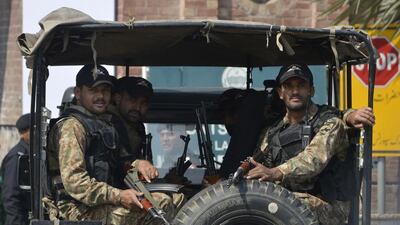If the plans currently under discussion between Saudi Arabia and Pakistan bear fruit, they will signal a further shift in relations between the two countries. Of greater import, however, will be the message they send to Iran.
The plans under discussion revolve around creating an emergency response force inside Saudi Arabia, composed of thousands of Pakistani troops. This brigade would ostensibly be there to “bulk up” Riyadh’s military at a time when the kingdom is fighting an intense war in Yemen. That Pakistan would send troops to a GCC country is not especially new – novel, certainly, but Pakistani troops have in the past provided assistance to Saudi Arabia at times of particular danger. They were involved, for example, in the country during the first Gulf War.
But there is a wider message being conveyed. The kingdom was the driving force behind the creation of the “Muslim Nato”, as the Islamic Military Alliance to Fight Terrorism, a coalition of 39 Muslim countries, is sometimes called. This coalition – which excludes Iran – is meant to be headed by a retired Pakistani army chief, General Raheel Sharif, although he appears to still be clarifying his role, and more broadly Islamabad has been hesitant to take sides so overtly between Saudi Arabia and Iran.
Yet the recent move signals that Islamabad has decided to prioritise its relationship with Saudi Arabia and the wider Gulf. That ought to be a message – and a warning – to Iran. Tehran needs to recognise that its meddling in the Middle East has profound consequences, for the region and for itself. It is because of Iranian meddling in Iraq, Syria, Yemen and elsewhere that so much of the sectarian conflicts in the region has been created or exacerbated.
It is the Saudi reaction to that meddling that has resulted in the creation of this coalition. And by allowing Pakistani troops into the kingdom, Islamabad is showing that it, too, recognises how important defeating terrorism and instability is for Pakistan itself – after all, the sectarianism that has been inflamed in the Middle East also has an effect in Pakistan. The two regions are interlinked.
Hopefully Tehran will get the message. When a country on its eastern flank, Pakistan, sends troops to a country to its west, in part to defend against conflicts that Tehran itself has stoked, it should be obvious that Iran is not behaving responsibly in its own neighbourhood. Tehran’s policies are pushing countries around it closer together.

